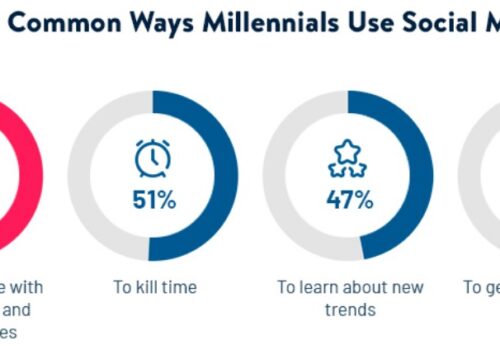Email marketing is like sending a letter to your friends, but it’s for business, and you send it to lots of people at once through the Internet.
It’s a super smart way to talk to customers and tell them about cool stuff your business is doing, like sales or new products.
Lots of businesses use it because it works really well and doesn’t cost too much money.
I’ve got some amazing facts and numbers to show just how big and helpful email marketing is for businesses today.
How Do You Define Email Marketing?
Email marketing is the utilization of email to promote products or services. It is not, however, confined to that. Email marketing could be leveraged to strengthen existing customer relationships and/or to find potential customers.
Businesses may utilize email marketing to stay in touch with their customers and personalize their brand message to their needs. It’s one of the most cost-effective and conversion-rich digital marketing methods available right now.

Sources: Pexels
It’s powerful and intriguing, and it gets your eCommerce store great results.
Top 10 Email Marketing Statistics To Consider In 2025
Here’s a collection of noteworthy email marketing facts that demonstrate the importance of email marketing.
1. Email’s Widespread Adoption
From modest communications among academicians to widespread global usage, email has come a long way since its inception. The volume of email users globally is expected to reach 4.3 billion by 2022. (Statista).
By 2025, this figure is expected to reach 4.6 billion, comprising more than 50% of the world’s population.
This data clearly illustrates that businesses cannot ignore the potential possibilities of email marketing.
Your customers are definitely using email if you’re running a business in a civilized economy. Therefore, you should be doing it as well. Your company can reach individuals using email marketing 24/7, 365 days a year, no matter how tiny your company is.
Since email saves effort and time, you can better plan your email marketing strategy and engage with your audience in real time.
2. Billions of Emails are Sent Per Day
In the Year 2022, Per day 333.2 billion emails were anticipated to be exchanged (According to Statista). That’s a staggering amount of emails per day.
However, that isn’t all. This figure is expected to exceed 375 billion by the year 2025. This email marketing statistic will most likely convince you why email marketing is not going away anytime soon. In fact, it’s growing in size.
Over time, many new modes of communication have emerged. Despite this, email marketing has shown to be effective and popular. It’s tough to underestimate the benefits of an effective email marketing campaign when you consider this email marketing statistic.
3. Email Marketing Provides a High Return on Investment (ROI)
It’s no surprise that email marketing has a huge ROI due to its vast popularity and evident benefits. With a well-planned email marketing strategy, you may create cash.
For every dollar invested in email marketing, you can anticipate a forty-two-dollar ROI (DMA). There are many advantages to email marketing, but this one is at the top of the list for maintaining your business running smoothly.
Sources: Pexels
4. Application Email to Communicate and Share Content
It’s no wonder that email marketing is one of the most prominent content delivery tactics among marketers, given its excellent return on investment.
According to current figures, 87% of marketers utilize email marketing to disseminate their content (Content Marketing Institute). An email has become the 2nd most prominent method of content distribution, trailing only after social media (89 percent).
It also beats organic channels like the business’s blog or site, including presentations at digital or live events.
One-third of marketers (33%) are spending on paid partnerships to promote their content to their partners’ mail databases because email marketing offers far too many incentives as a content distribution channel.
In fact, among marketers, email engagement is among the most commonly used metrics for measuring content performance.
86% of marketers indicated they use email engagement data like click rates, downloads, and open rates to determine how successful a piece of content is, rather than website traffic or social media numbers.
5. Email Marketing Aids in Business Growth
Email is the key driver of client acquisition and retention for SMBs. According to the report, 81% of SMBs use mail as their primary client acquisition channel, and 80% use it to maintain their customers (Emarsys).
Although there is a lot of talk regarding social media, tweets, shares, and likes, email marketing is still crucial. Email marketing surpasses organic search, sponsored search, and social media in terms of customer acquisition and retention, according to the findings of this study.
Not to suggest that Facebook isn’t essential, but when it comes to direct impact and reach, email marketing is unrivaled.
6. Greeting Emails: Get a Significant Open Rate On your Emails
Examining the open rates is one of the effective methods to see how well your email marketing strategy is working. This number represents the number of people who have viewed your email. Who wouldn’t desire to build a successful email marketing strategy?
What percentage of your audience, though, truly checks your emails? Let’s talk about the numbers. The average open rate for a welcome email is 82%.
You can use this while sending out an email blast to your growing list of subscribers. With such a high open rate for greeting emails, you might as well include some important information that you want your readers to be informed of.
7. When it Comes to Email, Personalization is a Game-changer.
As stated in the previous figure, the typical email click-through rate is 20.81 %. If you personalize your emails, however, you’ll see how effective personalization can be. Emails with personalized subject lines have a 50% higher open rate.
A wise email marketing strategy is to personalize your welcome and subject lines to include individual names when sending out emails. If that’s too much of an effort, personalize your emails by including the company’s name, industry, or topic of interest.
8. The Importance of Emails Regarding Abandoned Carts
An abandoned cart email is a follow-up message sent to someone who has added items to their cart, gone through part of the checkout process, but left the site without purchasing the items.
Many consumers fill their online shopping carts with items only to leave them without making a purchase. You can circumvent this problem by sending abandoned cart emails to recoup your lost transaction potential.
Sources: Pexels
Is it effective to send emails to clients who have deserted their carts? Numbers support this assertion. 69% more orders are produced when 3 abandoned cart emails are forwarded instead of 1.
This is, without a doubt, one of the most effective types of eCommerce mail for boosting sales.
9. Interactive Emails Are the Way To Go
The involvement of your recipients should be the purpose of your emails. The days of an email marketing campaign consisting solely of newsletters are long gone. To improve engagement, marketers are looking for more interactive content.
Using videos in your email can increase click rates by roughly 300%, as per Martech Advisor’s 2017 data. That is a mind-boggling figure.
Marketers routinely employ GIFs, sliders, and collapsible menus to make their emails more enticing to customers. Make sure all of your captivating emails are smartphone-friendly as well.
10. Your Audiences Would Want to Hear From You
When asked how often they would want to get promotional emails from their favorite firms, 49% said they would wish to receive them once a week.
If you’re worried about sending too many emails to your customers, this email marketing data will come in handy. Your audience likes listening to you & it looks like they also enjoy receiving emails from you.
FAQs
🤔 How many people use email every day?
Nearly 4 billion people use email daily, making it a huge audience for businesses.
💡 What's the return on investment (ROI) for email marketing?
For every $1 spent on email marketing, businesses can see an average return of $42.
🚀 What's the future of email marketing?
Email marketing continues to grow, with personalization and automation being key trends for engaging customers effectively.
💼 How does email marketing compare to social media marketing?
Email often has a higher engagement rate and ROI compared to social media, making it a powerful tool in a marketer's arsenal.
✉️ How important is personalization in email marketing?
Very! Emails with personalized subject lines are 26% more likely to be opened, highlighting the value of personalization.
Quick Links:
- Social Media Statistics
- Instagram Statistics
- Blogging Statistics
- Pinterest Statistics
- Fascinating Online Shopping Statistics
- E-Learning Stats and Trends
Conclusion: Email Marketing Statistics 2025
Email marketing is super powerful for businesses, big or small. It’s like having a magic key that helps you talk directly to your customers without spending a ton of money.
The cool facts and numbers show that a lot of people like to get emails and even buy things because of them.
So, if you have a business, using email to reach out to your customers is a really good idea. It can help you make more sales and keep your customers happy and coming back for more.
Sources: Statista, Worldometers, Oberlo, Emarsys, Getresponse, Omnisend, Toolbox, Hubspot, MailChimp, OptinMonster







